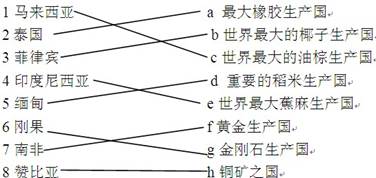C.
After blogging regularly for two months, people felt they had better social support and friendship networks than those who don’t blog. Blogging can help you feel less isolated, more connected to a community and more satisfied with your f riendships, both online and face-to-face, new Australian research has found.
riendships, both online and face-to-face, new Australian research has found.
Researchers James Baker and Professor Susan Moore from Swinburne University of Technology in Melbourne have written two papers investigating the psychological benefits of blogging, regularly updating personal web pages with information that invites others to comment.
The first, published in the latest issue of the journal Cyber Psychology & Behavior, compares the mental health of people intending to blog with that of p eople not planning to blog. Moore says the researchers messaged 600 My Space users personally and directed them to an online survey. A total of 134 completed the questionnaire; 84 intended to blog and 50 didn’t.
eople not planning to blog. Moore says the researchers messaged 600 My Space users personally and directed them to an online survey. A total of 134 completed the questionnaire; 84 intended to blog and 50 didn’t.
“We found potential bloggers were less satisfied with their friendships and they felt less socially integrated, and they didn’t feel as much part of a community as the people who weren’t interested in blogging…” Moore says. “It was as if they were saying ‘I’m going to do this blogging and it’s going to help me.’”
And it seemed to do the trick, as the researchers’ second study shows. This study, which is yet to be published, was conducted two months later. The research ers sent out questionnaires to the same group of My Space users; this time 59 responded. Bloggers reported a greater sense of belonging to a group of like-minded people and feeling more confident for they could rely on others for help. All respondents, whether or not they blogged, reported feeling less anxious, depressed and stressed after two months of online social networking.
ers sent out questionnaires to the same group of My Space users; this time 59 responded. Bloggers reported a greater sense of belonging to a group of like-minded people and feeling more confident for they could rely on others for help. All respondents, whether or not they blogged, reported feeling less anxious, depressed and stressed after two months of online social networking.
“So going onto My Space had lifted the mood of all participants in some way,” Moore says. “Maybe they’d just made more social connections.” Moore acknowledges this early research and hopes to follow a larger group of people for a longer period time to test some of the research findings.
46. What does the passage mainly tell us?
A. The mental health of bloggers B. Blogging improves one’s social life.
C. What kind of people are likely to blog D. Blogging has become more popular.
47. It can be inferred from the fourth paragraph that ______.
A. those who were not interested in blogging didn’t have good mental health.
B. people were likely to become bloggers if they felt  socially isolated
socially isolated
C. potential bloggers were those who had mental health problems
D. potential bloggers usually held a wrong view about blogging
48. The purpose of the second study is to find out ______.
A. what people do on My Space
B. how many people became bloggers
C. how people felt after blogging for two months
D. how many people kept blogging after two months
49. The second study shows that ______.
A. online social networking can do people good
B. only bloggers benefit from online social networking
C. not many potential bloggers became real bloggers
D. not all bloggers found the help they needed
50. The main purpose of people going on My Space is probably to ______.
A. exchange goods B. entertain themselves
C. seek help D. exchange views


 riendships, both online and face-to-face, new Australian research has found.
riendships, both online and face-to-face, new Australian research has found. eople not planning to blog. Moore says the researchers messaged 600 My Space users personally and directed them to an online survey. A total of 134 completed the questionnaire; 84 intended to blog and 50 didn’t.
eople not planning to blog. Moore says the researchers messaged 600 My Space users personally and directed them to an online survey. A total of 134 completed the questionnaire; 84 intended to blog and 50 didn’t. socially isolated
socially isolated